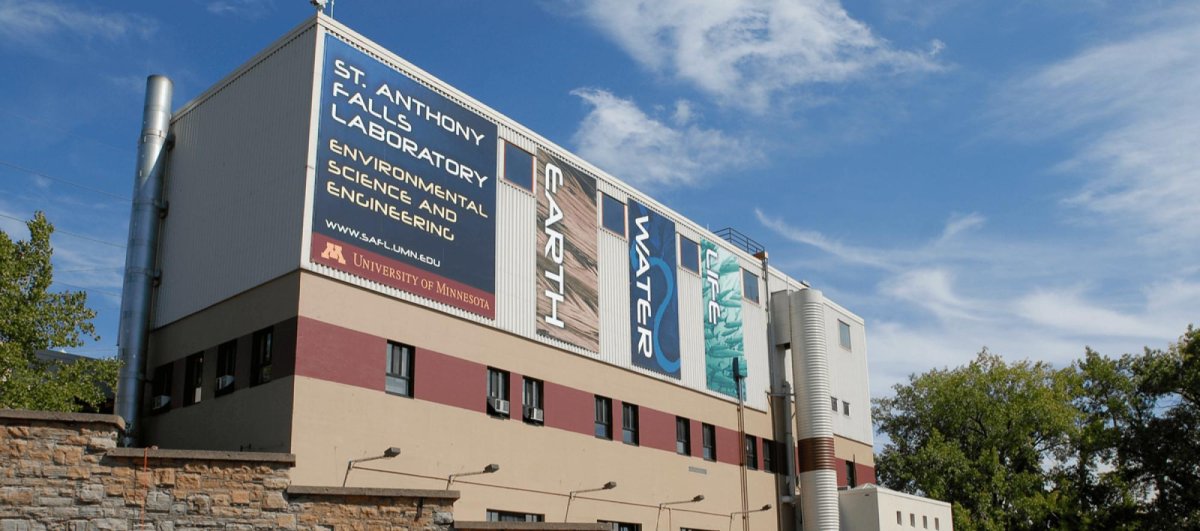SAFL-affiliated faculty Fall 2020 course offerings

The following courses for FALL 2020 will be taught by SAFL-affiliated faculty (pdf available)
Department of Civil, Environmental, and Geo- Engineering
CEGE 3502 (w/lab) or CEGE 4522 (w/o lab): Introduction to Fluid Mechanics Instructor: Judy Yang
Days/Time: TTh 11:15 am – 12:30 pm Location: Online
Description: Fluid statics/dynamics. Kinematics of fluid flow, equations of motion, pressure-velocity relationships, viscous effects, boundary layers. Momentum/energy equations. Lift/drag. Flow in pipes and pipe systems. Hydraulic machinery. Fluid measurements.
CEGE 4102W, 4103W, 4104W: Capstone Design for CEGE Instructor: John Gulliver
Days/Time: TTh 4:00 – 6:00 pm Location: Online
Description: Teams formulate/solve civil engineering problems. From conceptual stage through preliminary planning, public hearings, design, environmental impact statements, final plans/specifications, and award of contracts.
CEGE 4501: Hydrologic Design (w/Discussion) Instructor: Ardeshir Ebtehaj
Days/Time: MW 1:00 – 2:15 pm Location: Online
Description: Hydrologic cycle: precipitation, evaporation, infiltration runoff. Flood routing through rivers and reservoirs. Statistical analysis of hydrologic data and estimation of design flows. Open channel flow, flow through conduits. Detention basin design, hydraulic structure sizing, estimation of risk of flooding.
CEGE 4563: Pollutant Fate and Transport Instructor: Vaughan Voller
Days/Time: MW 1:00 – 2:15 pm Location: CE Building 210
Description: This course will focus on understanding the processes that dictate chemical fate in surface waters, including air-water transfer, adsorption, and biological and abiotic degradation. Students will evaluate the kinetics of these processes by interpreting experimental data. They will also characterize transport in surface waters by building theoretical and computational models from scratch that incorporate advection, diffusion and dispersion transport processes. Students will develop finite difference solutions to advection-diffusion-reaction equations, using ideal and non-ideal reactor theory, to describe the ultimate fate of pollutants in surface water systems such as rivers, lakes, and estuaries. Fate and transport of organic pollutants (such as pesticides and pharmaceuticals), as well as biochemical oxygen demand and nutrient pollution, will be studied.
CEGE 5512: Stochastic Ecohydrology Instructor: Xue Feng
Days/Time: MW 2:30 – 3:45 pm Location: Online
Description: This course will provide the theoretical and quantitative basis for understanding the interactions between the water cycle, vegetation, soil biogeochemistry, and the atmosphere. A main focus of the course will be on modeling the water and carbon dynamics across the soil-plant-atmosphere system. We will provide probabilistic descriptions of this system at the daily, seasonal, and interannual timescales by incorporating various sources of randomness and non-stationarity within the environment, particularly those from rainfall. These concepts and tools will be discussed in the context of sustainable management of water resources and terrestrial ecosystems, especially in view of the changes in the hydrological regime from climate change and societal pressures.
CEGE 5543: Intro to Environmental Fluid Mechanics Instructor: Miki Hondzo
Days/Time: TTh 2:30 – 3:45 pm Location: CE Building 205 Description: Environmental fluid mechanics is the study of the interaction of fluid flows that occur in aquatic ecosystems with the growth and behavior of living organisms.
CEGE 8521: Atmospheric Boundary Layer Instructor: Michele Guala
Days/Time: MW 11:05 am – 12:55 pm Location: CE Building 205 Description: Land-atmosphere interactions and turbulent transport in the atmospheric boundary layer (ABL), the lowest part of the atmosphere. ABL development and dynamics. Turbulence, surface energy balance, spectral analysis, similarity theory. Flow over homogeneous and heterogeneous surfaces. Atmospheric stability, measurement, simulation of turbulent fluxes.
Department of Earth and Environmental Sciences
ESCI 1909: Manoomin/Wild Rice Environment Instructor: Crystal Ng
Days/Time: TTh 9:45 – 11:00 am Location: Online
Description: Manoomin (Ojibwe for wild rice) is Minnesota?s beloved state grain, and it plays a central role in both the diet and cultural identity of many Native peoples around the Great Lakes. Manoomin/wild rice is an aquatic grass that grows naturally in shallow lakes and streams, but unfortunately, due to its high sensitivity to various environmental stressors (e.g., perturbed water levels, contaminants, competitive and invasive species, and climate change), it has been experiencing progressive declines across the region. This has been alarming for Native and non-Native people for whom manoomin/wild rice holds special meaning. In this course, students will gain an interdisciplinary perspective on how multiple components of the environment, as well as people?s relationships and actions with it, together influence the health of manoomin/wild rice stands. Understanding what supports manoomin/wild rice requires a look at local lake to greater watershed-scale conditions; interacting ecological, hydrological, geochemical, and geological processes; and different environmental management approaches driven by diverse values. While manoomin/wild rice has served as a flashpoint between tribes and industries that impair their environment, we will learn how it can also become a rallying point for Indigenous knowledge-holders and conventional academic scientists to share different worldviews, for tribal and non-tribal policy-makers to collaboratively manage resources, and for all communities living around manooomin/wild rice waters to be better stewards of the whole environment. Students will learn a holistic approach to studying manoomin/wild rice and its environment through readings and exercises that span disciplines. They will also participate in community-engaged learning activities that integrate perspectives beyond conventional academic cultures that can deepen our understanding of the environment.
ESCI 4701 (8701): Geomorphology (w/lab) Instructor: Andy Wickert
Days/Time: Location: Online
Description: Landscapes and the processes that shape them, encompassing fluvial, hill-slope, glacial, aeolian, and coastal environments. Mechanics of solids and fluids at Earth's surface. Erosion, deposition, and sediment transport
ESCI 5980: Seminar: Current Topics Instructor: Peter Kang
Days/Time: W 3:30 – 5:00 pm Location: online
Description: Topic for Fall 2020 – fracture hydrogeology
Department of Mechanical Engineering
ME 5332: Intermediate Fluid Mechanics Instructor: Jiarong Hong
Days/Time: TTh 8:15 – 9:30 am Location: Online
Description: Bridge between introductory fluid mechanics and advanced graduate level course. Principles of incompressible and compressible flows, boundary layer theory, and analysis using differential formulations of the governing conservation equations. Analysis of phenomena relevant to the practice of engineering is emphasized through problem solving.
ME 8337: Experimental Methods: Thermal Sciences Instructor: Jiarong Hong
Days/Time: MW 1:45 -3:15 pm Location: Cooke Hall 214
Description: Advanced fluid dynamics course addressing the theory and applications of fluid flows pertinent to mechanical engineering. The course focuses on the physical phenomena, mathematical formulations, and advanced problem-solving techniques for flows ranging from microscale flows to turbulence, with examples from mechanical engineering practice. Prerequisite an intermediate fluid mechanics course or permission of instructor.
